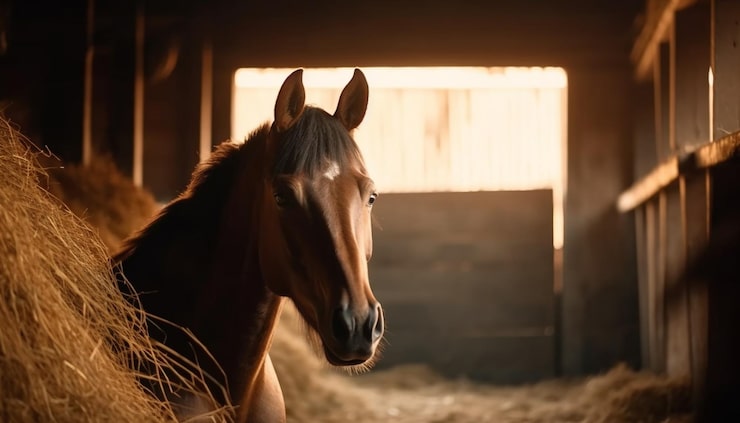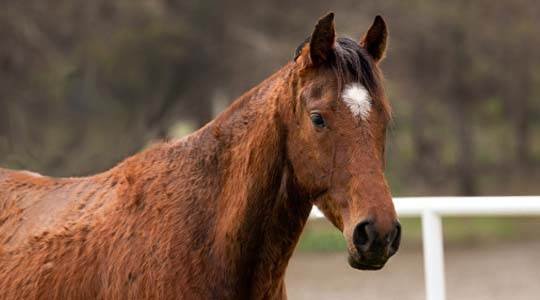As horses age, their needs change significantly, and finding natural remedies for senior horses becomes crucial for their health and well-being. With the proper care, senior horses can continue to enjoy a high quality of life well into their golden years. Understanding the specific needs of your older equine companion is key to providing them with the best possible care. This article will delve into a range of natural remedies and strategies that can help maintain the health and happiness of senior horses.

Understanding the Aging Process in Horses
Aging in horses, much like in humans, brings about various physiological changes. As horses grow older, they may experience a decline in dental health, joint flexibility, and digestion efficiency. Being aware of these changes can help you tailor your approach to their care.
Signs of Aging in Horses
Older horses may show signs such as weight loss, a dull coat, and reduced energy levels. Understanding these signs can help you identify when your horse needs extra support.
Importance of Diet and Nutrition
Nutrition plays a pivotal role in maintaining the health of senior horses. A well-balanced diet can address many age-related issues.
Choosing the Right Feed
Senior horses often require a diet that is higher in fiber and easier to digest. Consider feeds specifically designed for older horses, which are formulated to address their unique nutritional needs.
Supplements for Joint Health
Supplements such as glucosamine and chondroitin can help support joint health, providing relief from stiffness and arthritis common in senior horses.
Natural Remedies for Common Ailments
There are several natural remedies that can be used to address common ailments in senior horses.
Herbal Remedies
Herbs like chamomile and ginger can be beneficial for digestive health, while willow bark is known for its anti-inflammatory properties.
Essential Oils
Lavender and peppermint oils can be used in aromatherapy to help reduce stress and anxiety in senior horses.
Maintaining Dental Health
Dental care is crucial for senior horses, as dental issues can lead to significant health problems.
Regular Dental Check-ups
Ensure that your horse receives regular dental check-ups to address any issues early. Floating, or filing down sharp edges on teeth, can help maintain a healthy mouth.
Exercise and Mobility
Keeping senior horses active is important for their overall health and well-being.
Gentle Exercise Routines
Design exercise routines that are gentle on their joints but keep them moving and flexible.
Massage and Physical Therapy
Incorporating massage and physical therapy can help alleviate discomfort and improve mobility in senior horses.
Environmental Considerations
The environment where your horse lives can greatly impact their health.
Comfortable Shelter
Providing a warm, dry, and safe environment is essential for senior horses, especially during colder months.
Social Interaction
Maintaining social interactions with other horses can enhance a senior horse’s mental well-being.
Hydration is Key
Ensuring your horse has access to clean water at all times is crucial, as dehydration can lead to serious health issues.
Monitoring Water Intake
Keep an eye on your senior horse’s water intake, especially during hot weather or after exercise.
Monitoring Overall Health
Regular health check-ups are vital to catch any potential issues early.
Veterinary Visits
Schedule regular visits with your veterinarian to ensure your senior horse remains in good health.
The Emotional Well-being of Senior Horses
Just as physical health is important, so too is the emotional well-being of your horse.
Understanding Emotional Needs
Senior horses may experience anxiety or depression, and understanding these emotional needs can help you provide better care.
Creating a Stress-Free Environment
Minimizing stressors in your horse’s environment can help improve their overall quality of life.
Conclusion
Taking care of a senior horse requires attention to detail and a willingness to adapt to their changing needs. By focusing on natural remedies and a holistic approach to care, you can help your horse enjoy their senior years in comfort and happiness. For further guidance, consider checking out care of elderly horse for additional tips.

Frequently Asked Questions
How often should senior horses see a vet?
It’s recommended that senior horses have veterinary check-ups at least twice a year, or more frequently if they have health issues.
What are some signs that a senior horse is in pain?
Signs of pain in senior horses can include limping, reluctance to move, changes in behavior, and loss of appetite.
Can senior horses still be ridden?
Many senior horses can still be ridden, but it’s important to tailor exercise to their abilities and consult with a vet to ensure they are fit for riding.
This article contains affiliate links. We may earn a commission at no extra cost to you.
